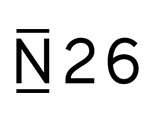The tax year in Ireland works on the basis of the calendar year (January-December). Within the first few days of January the Revenue Commissioners will send you a statement called 'Notice of determination of tax credits and standard rate cut-off point'. This statement will give you information on how to calculate your tax liability for the coming year.
Because most taxes in Ireland are based on self-assessment, individual taxpayers are liable to report, calculate and pay any tax due within prescribed time limits. These are as follows:
- 1st January is the deadline for applying to pay next year’s tax bill (i.e. the year starting the following 1st January) by direct debit;
- 31st March is the last date for claiming separate assessment; payment must be made in the period between the 1st of October of the preceding year and the 31st March in the year of that the claim is made;
- 31st October is the deadline for submitting your tax return for the previous tax year;
- 31st October is the deadline for preliminary payment of tax for the current tax year. If you use the ROS Direct Debit system you have until the 16th November to pay;
- If the preliminary income tax paid for the previous tax year was insufficient, you should pay the balance of income tax due for that year on or before 31 October of the current year (or 16th November using the ROS Direct Debit system);
- Preliminary capital gains payments for disposals made in the first part of the current tax year (1st January- 30th November) should be paid before 15th December (or 16th November when using ROS Direct Debit);
- 31st December is the last date for availing of tax deductible investments (e.g. film schemes and BES).
Preliminary tax is an estimate of the income tax you will be charged in the current tax year and includes PRSI and Health Contribution. To avoid interest charges you must pay 90 per cent of your liability for the current year or 100 per cent of your previous year’s tax bill or 105 per cent of your bill from the year before that (this last option is available only if you pay by direct debit), whichever is the lowest amount.
Tax forms can be obtained from tax offices in Ireland and on the Revenue Commissioner's website . If you’re self-employed or a company director, you should use form 11; PAYE employees and pensioners should complete form 12 and first-time workers form 12A. Form 1 is for partnerships and Form CT1 for companies.
If you need help completing your tax return, you should refer to the Revenue Commissioner's website which gives detailed instructions on how to complete forms. Should you need further assistance, it is a good idea to contact the tax office directly (see website for contact details). Note, however, that this won’t necessarily be the office in the area where you live. If you’re an employee of a company whose headquarters is in another part of the country, for example, your tax office will be the one in that area. If you wish to see an inspector, you should make an appointment, but general assistance is always available (staff will even help you complete your tax form!).
When you go to the tax office, you should take along some form of identification (if you’re a non-resident), your PRSI number, your P45 (if appropriate) and any forms you have received from the Revenue Commissioners. It isn’t necessary to take other documentation (such as rent books) unless requested to do so.
Before submitting your tax return, you should check that you’ve completed all the sections (where you have no income in a particular category, you should write ‘none’ rather than leave it blank). If you’re claiming mortgage interest relief, you should enter the loan account number of your lender and attach you mortgage interest certificate stating the amount paid during the last tax year, as well as an estimate of the interest payable in the following year.
Tax forms include customised pay slips showing your PRSI number, tax type, etc., which must be returned with the tax form, even if you’re making a nil return. You should also include copies of the following documents:
- form P60;
- form P45 if you have ceased employment;
- details of any benefit-in-kind (especially a company car);
- if you’re receiving any social welfare income, a statement from the Department of Social, Community and Family Affairs confirming the kind of income, the date payment began and the weekly amount;
- details of any rent paid (which should be entered on form ‘Rent 1’);
- if you’re receiving rental income, a detailed account of gross rent and expenses such as furniture on which you may be entitled to a wear and tear allowance;
- details of any acquisitions and disposals of assets during the tax year which may be liable for capital gains tax;
- documentation relating to government stocks, rents and other income;
- the relevant claim form if you’re claiming a dependent relative allowance for the first time;
- details of any allowable medical and dental expenses, which should be entered on forms ‘Med 1’ and ‘Med 2’ respectively;
- confirmation of any private health insurance subscriptions paid during the previous tax year;
- form RICT for any BES or film scheme investments;
- receipts for private tuition if appropriate;
- certificates of private pension contributions.
If you’re a company or a sole trader, you’ll also need to submit:
- a trading account showing details of sales and profit/loss for the tax year;
- a profit and loss account;
- a capital account;
- a balance sheet showing business assets and liabilities.
N. B. Finally, make sure that you sign the form!
There are three ways of paying your income tax in Ireland:
- you can post payment to the Collector-General’s Office using the pre-paid envelope provided with your tax form;
- you can pay it in person at the Collector-General’s Office (Apollo House, Tara Street, Dublin 2 or Sarsfield House, Francis Street, Limerick); or
- you can pay by bank Giro. The last method is obligatory for payments of preliminary tax, VAT and employer’s PAYE/PRSI.
Unless your tax affairs are simple, it’s prudent to employ an accountant or tax consultant to complete your tax return and ensure that you’re correctly assessed.




